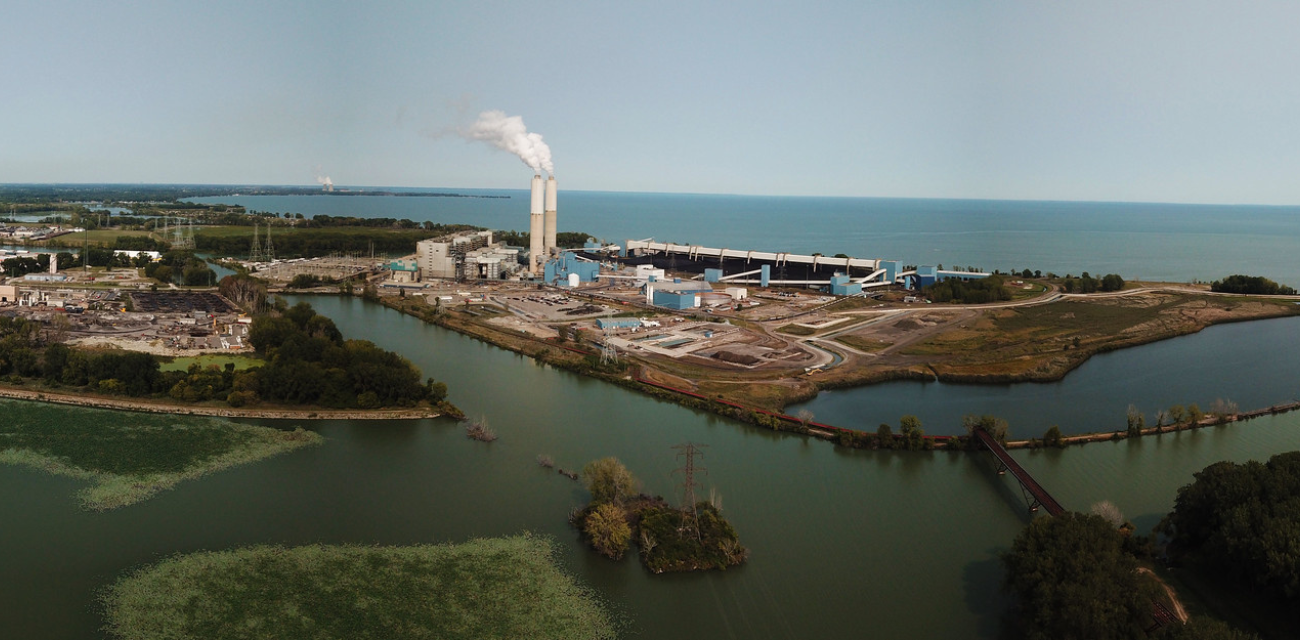DTE rate case decision blunts customers’ health risks, financial burdens

Authored by

Beau Brockett Jr.
Connect With the Experts

Charlotte Jameson
DTE Energy’s attempt to significantly raise electricity rates on its residential customers and run dirty, expensive power plants was blunted Friday.
April was the first month in history more renewable energy was used in the United States than coal. The Michigan Public Service Commission issued an order which continues that trend by rejecting unjustified fossil fuel spending and reducing the 9% rate increase DTE asked to impose on its residential customers. The Commission’s decision will affect customer bills starting June 2020.
Many outcomes in the order reflect the recommendations that Citizens Utility Board of Michigan, Michigan Environmental Council, Natural Resources Defense Council and Sierra Club of Michigan urged the Commission to adopt while intervening and advocating. They sought a solution that would make the wallets, well-being and environment of DTE’s customers and their families healthier.
“Instead of protecting clean water, clean air and our communities, DTE chooses to invest in their pocketbooks by doubling down on expensive, polluting fossil fuels,” said Theresa Landrum, Detroit resident and activist with Sierra Club. “We thank the Michigan Public Service Commission for holding DTE accountable, limiting its rate increase, rejecting its fossil fuel spending and forcing it to develop a community transition plan for retiring the River Rouge coal plant.”
Among the Commission’s decisions was rejecting fossil fuel expansion and pressing the utility to better phase out two outdated, polluting coal plants. The orders come as scientists confirm exposure to particulate matter pollution from coal plants and other sources decreases the chance of surviving COVID-19.
Along with a rate hike, DTE will continue to charge its residential customers 9 cents more per kilowatt hour than its industrial customers, far above the national average. This will happen as Michiganders spend more time at home because of COVID-19, using more electricity to refrigerate their food, keep their families warm and keep their lights on, all while on restricted budgets.
“As so many families are struggling to afford their bills during the current crisis, DTE needs to be working harder to limit the burden of its costs that are shouldered by residential and small business customers,” said Amy Bandyk, executive director of the Citizens Utility Board of Michigan. “In Friday’s order, the Commission took some important steps for low-income customers by denying any increase in fixed charges and by removing the cap on the number of customers who can participate in the utility’s low-income bill assistance programs. It also didn’t allow DTE to raise rates as high as the utility originally requested. But the order continues the worrying trend of DTE proposing – and the Commission approving – rate hikes on its residential and small business customers while industrial customers’ rates stay flat.”
Charlotte Jameson, program director for legislative affairs, energy and drinking water for Michigan Environmental Council, had similar sentiments.
“During this time of crisis we remain concerned about even a modest rate increase on residential customers, particularly given that they already shoulder disproportionately high electricity costs,” she said. “The Commission’s decision today stands in sharp contrast to the astounding 9% residential rate increase DTE originally asked for. What is more, the Commission’s order is a major win for advocates in our efforts to close uneconomic, polluting coal plants like River Rouge and to ensure that the millions DTE spends on distribution infrastructure truly leads to real increases in reliability and performance, which sadly has not been the case.”
Prior to today’s rate case decision, the utility received $775 million in rate hikes since 2015, the second-largest in the country during that time. DTE claimed it needed its most recent rate hike to improve its grid and better transition to clean energy despite continued use of wasteful coal plants.
“Today’s decision sends the utility a message that a transition to cleaner, more affordable energy is coming fast,” said Samantha Williams, Midwest director of climate and clean energy at NRDC. “Although advocates were hoping for a smaller increase, the decision prevents the massive increase DTE sought. And there are other bright spots like keeping the utility accountable. At a time when reliable power is a public health imperative, spending consumer dollars should lead to real gains in reliability, efficiency, and enable the clean energy transition. The Commission decision is a step in that direction.”
The Commission ordered the following:
- Cut DTE’s requested $351 million rate increase to $188 million. The 4.7% rate increase will amount to $7.18 more per month for an average American household.
Stopped investment in the River Rouge coal plant and required development of a community transition plan. DTE will no longer waste customers’ money on a dirty, uneconomic plant which is a source of significant air pollution emissions for the country’s third-most polluted community, the 48217 zip code. DTE sought to recover $11.4 million in capital costs for River Rouge, to extend the life of it until 2022 and burn gases at the facility. - Require DTE to perform a revised cost-benefit analysis of the Belle River coal plant with earlier retirement dates. The plant is currently not scheduled to retire until 2030, even though cheaper and cleaner energy sources are available.
Denied DTE’s request to increase the monthly fixed residential charge. Fixed charges negatively impact low-income customers and seniors on a fixed income. The Commission also rejected DTE’s proposed fixed monthly bill and low-income renewable energy pilots, encouraging the utility instead to work with stakeholders to develop stronger programs. - Reduce DTE’s rate of profit to 9.9%. DTE originally sought to increase its rate of profit to 10.5%.
- Cut 20% of its strategic capital fund due to misuse. DTE had been diverting the fund to storm response and not spending it fully on strategic investments in the distribution system. The Commission approved only that amount that DTE had previously demonstrated to spend on strategic investments.
Discover
Power environmental change today.
Your gift to the Michigan Environmental Council is a powerful investment in the air we breathe, our water and the places we love.
Sign up for environmental news & stories.
"*" indicates required fields




